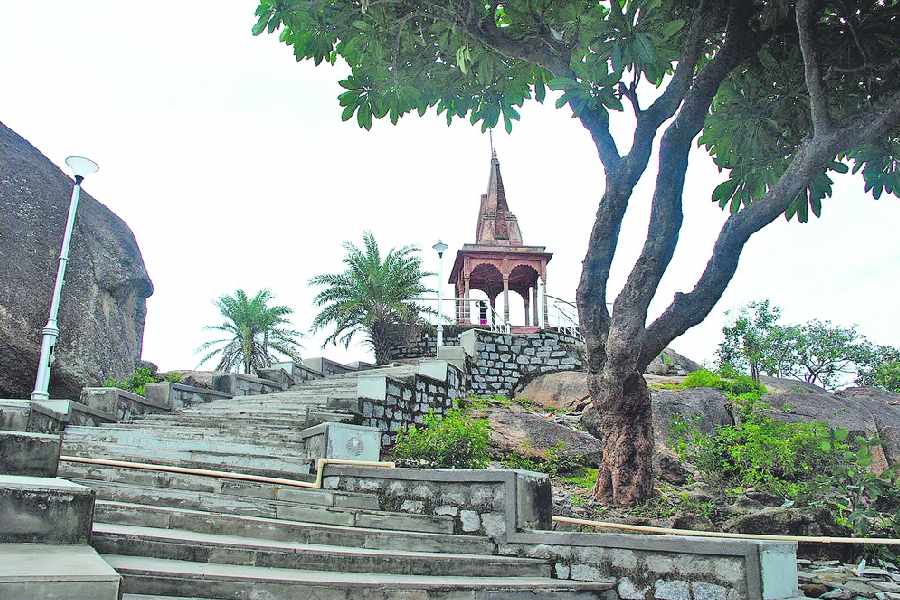The Jharkhand High Court has directed the authorities to beautify the scenic Tagore Hill, a hangout zone for the people of Ranchi, and the structures atop it that are associated with the family of Nobel laureate poet Rabindranath Tagore.
While hearing a PIL, a division bench presided by Chief Justice Sanjaya Kumar Mishra also ordered the Archaeological Survey of India (ASI) to reconsider its decision not to accept the structures atop the 300-metre tall hill in Moradabadi area as an “ancient monument”, and hold them worthy of national importance.
In another PIL, the court also ordered the government for the upkeep of the temple of much-revered Maa Chinnamastika, one of the 10 ‘Mahavidyas’ (Tantrik goddesses) at Rajrappa in Ramgarh district.
The Society for Preservation of Tribal Culture and Natural Beauty had filed the PIL seeking the high court’s direction to the ASI to hold the structures on Tagore Hill as ancient monuments.
The ASI had turned down the proposal observing that the structures are not more than 100 years old and do not qualify to be the category of ‘ancient monuments’.
Jyotirindranath Tagore, who was the elder brother of Rabindranath, was a writer, social reformer, composer and painter. He inspired Rabindranath in his childhood in many ways shaping his personality.
Jyotirindranath bought the place and constructed a house and a Brahmo Mandir, a canopy-like structure for meditation.
Referring to a Bengali book ‘Jyotirindranather Jiban-Smriti’ (The Reminiscence of Jyotirindranath Tagore) by Vasantakumar Chattopadhyay, which was first published in 1920, the petitioner said the book mentioned that Jyotirindranath in his diary made an entry on October 23, 1908, wherein he had written “today the hill is registered.” Later, the house named ‘Shanti Dham’ built atop it was inaugured in 1910 and Jyotirindranath died there on March 4, 1925, the petitioner said.
It is in this house where Jyotirindranath translated Bal Gangadhar Tilak’s “Geeta Rahasya” into Bengali from Marathi, the petitioner said.
“Steps should be taken to remove all the encroachments in accordance with law so that boundaries of the Tagore Hill as per the original revenue records are restored… We sincerely hope that the directions, which have been given in this order, will be implemented and the state-respondents and Archaeological Survey of India will start taking positive steps for its implementation,” said the judgment passed recently.
In the other PIL, a division bench headed by the chief justice directed the administration to ensure that the banks there are widened.
The court has ordered proper toilets and changing rooms be made for devotees who throng the temple.
The administration has also been ordered to ensure proper lighting facilities on the banks of the river.
The architecture of Rajrappa temple bears resemblance to that of the famous Kamakhaya temple of Assam. It is believed that the Chhinnamastika temple was built around 6,000 years ago.
Except for the headline, this story has not been edited by The Telegraph Online staff and has been published from a syndicated feed.











